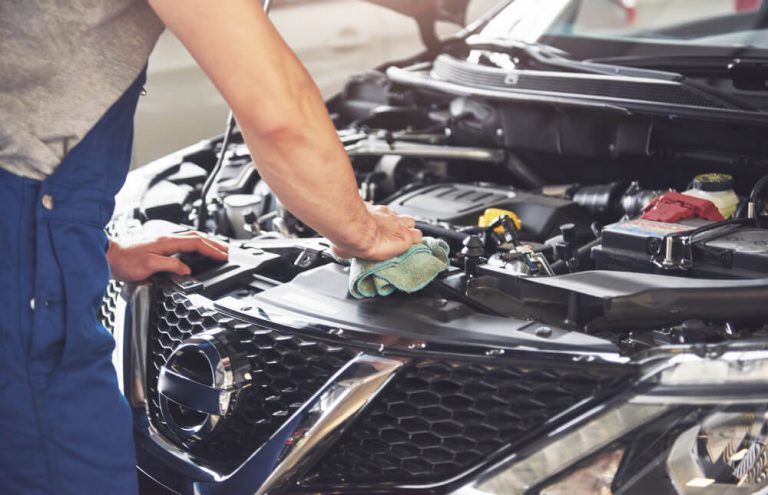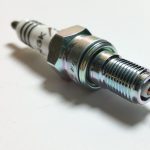Driving a car is one of the most common activities that humans take part in on an everyday basis. It’s a basic human instinct to move around and get to where you need to go, especially if you live in a large metropolitan city with potential safety dangers. A car is one of the safest means available to get around, as long as you take a few precautions and ensure that your vehicle’s condition is up-to-par.
In this article, we will be covering 6 causes of cars running rough after using fuel injector cleaner.
What is a Rough Running Car?
A rough-running engine usually means that the engine is not getting enough fuel, and it’s not getting all of the fuel it needs to keep running correctly. It can be caused by many different issues present in your car’s intake system.
You should look for several things if you notice a rough running engine. When you notice this issue, make sure you have an accurate diagnosis before going forward with repair work or replacement parts.
What is Fuel Injection?
Fuel injection is a system that is usually installed in newer cars. It’s a method of providing compressed air to the engine, which causes a series of explosions. These explosions occur to spray fuel through the intake manifold, which converts back into energy, allowing your engine to burn.
After the explosions occur, you can hear a hissing sound. The sound of the air and fuel being pumped into your engine is what you hear when you check your car’s engine at idle.
Most cars are equipped with fuel injection due to the cleaner emissions that it produces, even though it contributes to some of the additional expenses that people need to factor in.
Newer vehicles have them installed because they produce a better alternative for older cars that need improved power and fuel economy.
Causes of Car Run Rough After Using Fuel Injector Cleaner
1. The Fuel Injectors
One of the most common reasons a car will run rough is a faulty fuel injector. These fuel injectors provide pressurized fuel to keep the engine running smoothly, and if they are faulty, it could cause your car to run dirtier than usual.
If you’re experiencing these issues, you might want to take your car to a mechanic for diagnosis.
Replacing the fuel injectors is one of the most common ways that a mechanic will recommend fixing a rough running engine and usually involves little to no cost.
The only thing that you might need to pay for is the labor and cost of parts, depending on how far out you are with your car.
2. Engine Misfire
An engine misfire occurs when there’s an issue with the spark plugs. When the spark plugs aren’t getting the spark, they need to ignite the fuel to run correctly, and it can cause issues with how your engine is running.
When you get a misfire, your car will stumble and hesitate when accelerating and can cause difficulties with how the engine runs.
You should always make sure that your spark plugs are clean before going out of town on a long trip. If you’re experiencing this issue, it’s essential to ensure that your spark plugs are appropriately adjusted.
If you think you might have a misfire in the engine, it’s essential to test for fuel consistency and look for any issues with the engine light.
3. Intermittent Ignition
An intermittent ignition occurs when there is an issue with the connection between your car’s battery and the ignition switch. When your car’s battery isn’t getting the alternator to provide enough power, it can cause some issues with the electrical system.
If you notice that your car has issues starting, you should call a mechanic. Generally, there is no repair necessary for this issue.
However, if you have an issue with intermittent ignition, the only thing required is to replace your battery. Sometimes, a faulty alternator might also be responsible for this issue.
If you go to your mechanic, they will test the battery and check if your ignition has a problem.
4. Starter Issues
If your car has trouble starting, one of the first things you should check is to see issues with the starter. When your car can’t startup, it might be caused by damage to the starter or ignition switch.
If it’s the starter, then you’ll notice a clicking noise when the key turns, or your engine won’t turn over at all. If it’s the ignition switch, you may notice a clicking sound when turning the key after turning off your car, or you may be able to turn your car on and off.
5. Certain Conditions
Sometimes, you might run into issues where your car won’t run appropriately for no reason. If you’re experiencing these issues, it’s essential to ensure no environmental issues.
If your engine is running poorly in hot weather or cold weather, ensure that you’re not getting any error codes or engine lights when revving your engine.
If you suspect that there might be an issue with the environment, the only thing you should do is to check for a puddle of oil underneath your car.
6. The Fuel Filter
If you’re experiencing issues with your car running rough after replacing the fuel injector cleaner, one of the first things to check is to see if your fuel filter is clean. If it isn’t clean, it can cause an excess of fuel to get into your engine, which can cause some issues with how your car runs.
If your fuel filter is dirty, you should change it, or you can purchase a fuel injector cleaner specifically made to clean out your fuel filter. These cleaners are typically safe and offer the same protection as those found at gas stations.
Conclusion
When experiencing engine problems, you should take your car in for a professional diagnosis. It’s important to occasionally check for any issues with the condition of your fuel filter or spark plugs. If you don’t, it might cause additional damage to the engine after extended use. It might seem like an easy fix that tone can handle at home, but it’s usually not worth the risk of causing significant damage to the engine.



